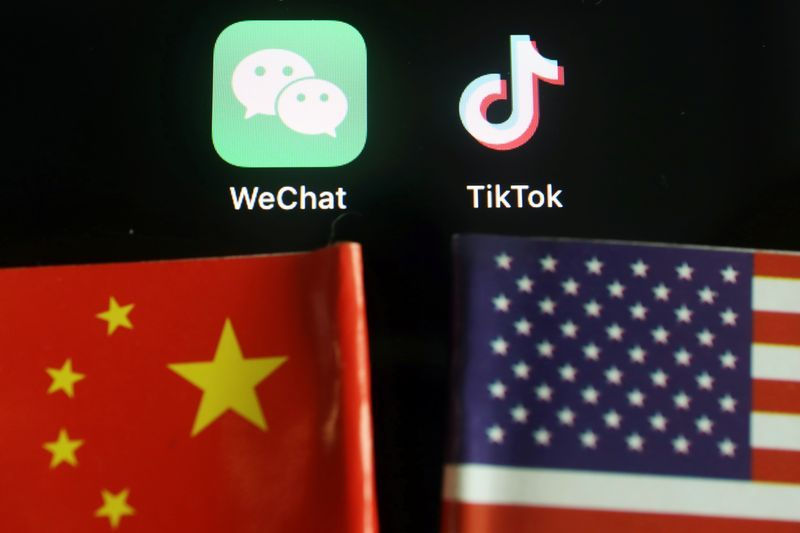Banning TikTok and WeChat Reflects Growing Schism Between US and China
- InkSociety

- Aug 13, 2020
- 3 min read
By Galiyan Zheng
UCSB
Late Thursday night, President Trump announced the signing of a formal executive order, announcing that it will officially block TikTok and WeChat, two apps originally designed and made by Chinese companies.
The most eye-catching clause of this executive order is,
45 days after the executive order is signed, The American government will forbid any U.S. individual or company to conduct any transactions with TikTok parent company ByteDance.
As well as prohibit American individuals and companies from conducting any WeChat-related transactions with Tencent.
The official effective date is 45 days after the executive order was signed on August 6, which is September 20, 2020. Those who violate the executive order will be punished by law.
"It would be naive and flat out wrong to say that Trump is responsible for the relationship between the US and China. However, recent events under the Trump administration has exacerbated this already tense relationship." - Eunice Kim
For a long time, there has been a famous saying that the deterioration of Sino-US relations is because of Trump. Many people think that it is only because Trump is the president that they are treating China poorly. But we are all wrong. There are deeper and more substantial reasons for the deterioration of Sino-US relations. For this underlying reason, no matter who the United States president is, the contest between China and the United States will inevitably enter a new stage.
Some people regard Trump's launch of a trade war after he took office as a change in US strategy towards China, but in my opinion, the difference in US strategy towards China began in 2011. The landmark event was Obama's participation in APEC. The "East Asian foreign policy" strategy announced at the meeting.
As early as 2000, the Republican Party's political platform stated that "China is a strategic competitor of the United States, not a strategic partner." Sino-US relations almost reached a turning point. However, the occurrence of the 911 incident and Bush's strategic misjudgment on this incident changed the timing of the turning point and gave China the time to breathe, and more than ten years of the necessary development period.
In the past 40 years, the United States has been selling software, computers, and microchips to China. These products have entered your life and industry, while China has sold shallow products to the United States, such as clothing, toys, and agricultural products. Now, the situation is going the other way. When China wants to sell in-depth products to the United States, the United States becomes alert and nervous. The value problem between the two countries comes out. There is no basis for mutual trust between our shared values, and the mutual exchange of in-depth products needs to be based on values.

The emergence of Huawei and TikTok stimulated the sensitive nerves of Americans. Huawei represents China's hard power in frontier fields of science and technology, while TikTok, as a social media software, embodies the ability to export soft power in a country's culture. When the United States discovered that China was also capable of exporting in-depth products to it, and the two levels of hard power and soft power appeared simultaneously, the Americans became nervous and anxious. An argument has begun to prevail in the United States. This argument is to the effect that this is the final strategic time window for the United States to contain China. Once this time window is missed, the United States will no longer be able to stop China's rise. So I am not surprised at all about the encounter between Huawei and TikTok. They are just a microcosm of Sino-US relations.
The hostility of the United States towards China cannot be eliminated by lobbying by interest groups. Behind this hostility is the tension and anxiety of the United States, and this tension and stress will prompt the American elite to form a consensus to suppress China. Elevate it to a national strategy. A typical external manifestation is that even though the Republicans and Democrats are always fighting, in the voting on relevant Hong Kong and Taiwan-related bills, almost all of them passed unanimously. The two parties' attitudes towards containing China are highly consistent.
Comments